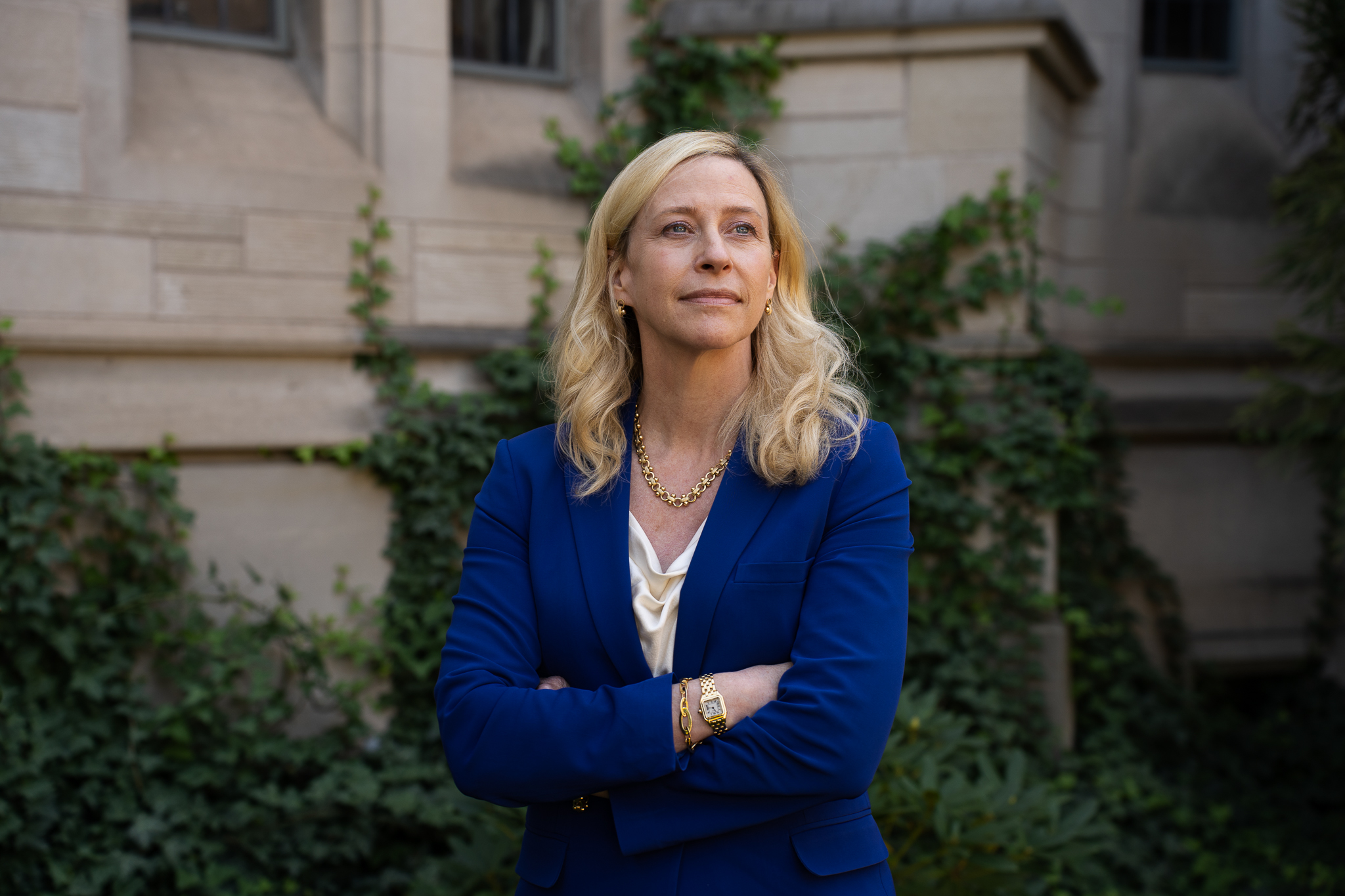McInnis plans lobbying push in Washington as Trump threatens university funding
University President Maurie McInnis said that combatting distrust in higher education will be a top priority for Yale during Trump’s next administration, announcing plans to ramp up the University’s Washington-based activity.

Ellie Park, Multimedia Managing Editor
Lobbying lawmakers to support higher education will be a focus for Yale as Donald Trump takes office, University President Maurie McInnis said in an interview with the News. Concerned about rising distrust in universities and various policy proposals that would cut funding, she said that she will be ramping up her Washington-based activity next semester, including traveling to the city often and opening a new Yale office space there.
The News reported in October that Yale is hiring a new director of federal relations, who McInnis said will work from the Washington office and spend their days meeting with lawmakers and personnel from the agencies that fund Yale. McInnis previously told the News that declining trust in higher education is one of the five most common themes that has come up in her meetings as president so far. She added that her office is currently designing a process that will be implemented next semester to “deepen listening” around those five subjects.
“There is a new urgency because of the rise in rhetoric and the rise in distrust,” McInnis said. “It is possible that higher education will very much be part of the work of the next [U.S. presidential] administration, and therefore will obviously be part of the work that I need to do.”
This work will mainly consist of McInnis, Yale’s long-term lobbyist Richard Jacob and the future Washington hire advocating for Yale’s interests when bills are introduced in Congress or if the Trump administration introduces policies hostile to higher education institutions. McInnis said she and her colleagues especially target their advocacy to lawmakers who are alumni of Yale or have other ties to the University.
Trump has said that universities indoctrinate their students and must be reclaimed from “Marxist maniacs.” He and Vice President-elect JD Vance LAW ’13 have proposed dramatically expanding taxes on university endowments, a blow that could affect need-blind admissions and academic research, the main ways Yale spends its endowment.
Jay Bhattacharya, Trump’s nominee to run the National Institutes of Health — which awards Yale the vast majority of its research grants and contracts — is considering making campus academic freedom a factor in which universities receive grants, according to The Wall Street Journal. The Journal reported that to gauge academic freedom, Bhattacharya may lean on a ranked list of free speech at universities by the Foundation for Individual Rights and Expression, where Yale is ranked as “slightly below average.”
Trump has also proposed abolishing the Department of Education, which could imperil the federal program that issues student loans and Pell Grants. 25 percent of Yale’s class of 2028 is eligible for a Pell Grant.
“There is a reason why post-World War II, in the Cold War era, the federal government made decisions that universities were going to be their partners in research and development,” McInnis said. “That has led to American competitiveness, economic development and American security, and that partnership is still very strong even if the political rhetoric is sometimes attacking that.”
“Even when people disagree with you,” she continued, “it’s important to sit down with them, listen to their critiques, find the common ground and advocate for the mission and the purpose of American higher education, and that is work that I know I will spend a lot of time next semester doing.”
McInnis said that in addition to Republican proposals that threaten higher education, distrust in universities is rising across partisan divides, and Democratic lawmakers are also concerned about costs in ways that could affect higher education.
The share of Republicans who reported having “a great deal” or “quite a lot” of confidence in higher education institutions plummeted 37 percentage points between 2015 and 2023. The share of Democrats who said the same dropped 16 percentage points in that timeframe, according to Gallup polls.
McInnis said that Yale and its community members should do more to engage with concerns that universities have become liberal echo chambers, a widespread belief that underpins conservative policy proposals to cut university funds. She pointed to Yale’s “Cultivating Conversation” initiative and “Dean’s Dialogues” series as examples of programs the University has created recently to promote dialogue on campus.
“For an educational institution to be able to do its work, you need to be able to have an environment where students can grapple with hard ideas with each other and not be shouted down or feel like they would be ostracized if they didn’t agree with others,” she said.
President-elect Donald Trump will be inaugurated on Jan. 20.







